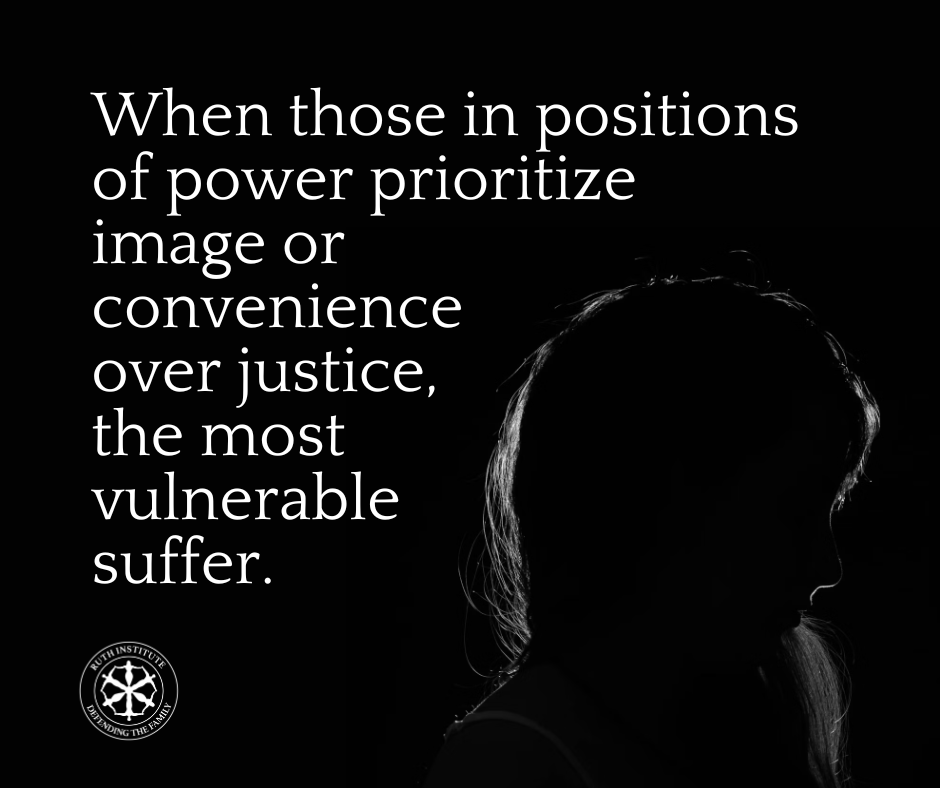Faith Hakesley
The issue with the UK’s grooming gangs scandal was recently reignited by some public comments made by Elon Musk. It brings to light a harrowing truth that echoes across the globe: when people in positions of power prioritize image or convenience over justice, the most vulnerable suffer.

What are Grooming Gangs?
For those of you not familiar with these “grooming gangs,” let’s break this down briefly: the term “grooming gangs” has been used in the United Kingdom to describe groups of men (mostly of Pakistani heritage) who systematically exploit young, vulnerable girls and use them for sexual exploitation. These men often form gangs or networks, and they use grooming type behaviors to target minors. The grooming process is when predators use manipulation and deception in order to build trust with their victims and ultimately exploit them. Predators might win their victims over with things such as gifts, attention, and threats or intimidation. The victims in these “grooming gang” cases have been subjected to sexual abuse, trafficking, and even prostitution.
For years, Pakistani men in the UK were accused of grooming young women for rape and gang rape. The stories are horrific and, if you haven’t read them, I do urge you to approach with caution especially if you are a survivor of sexual abuse. Some of the articles could be quite triggering. Despite the horrific crimes, local authorities and the Crown Prosecution Service reportedly looked the other way. There were some initial investigations in 2015 and recommendations were made for reform. However, little seems to have changed since then. It wasn’t until a recent surge in public outrage that the Labour government announced there would be a review.
Why has the Abuse Continued?
One of the reasons this issue has sparked public outrage is because of debates around race and cultural sensitivity. There is evidence to suggest that police and social services were hesitant to intervene due to the fear of being labeled racist or culturally insensitive since most of the predators are Pakistinian. Some critics have argued that the phrase “grooming gangs” can fuel ethnic or racial generalizations and can fuel anti-immigrant sentiment. The abuse was, therefore, allowed to continue. The other issue that arises from this horrible situation is the fact that there is a sad inadequacy of systems in place to protect vulnerable individuals from such exploitation.
Culture of Silence
Is any of this sounding even vaguely familiar? In some ways, this scandal feels painfully familiar to the Catholic clerical abuse scandal. In both cases, systemic failures and active cover-ups allowed abuse to be hidden and flourish. People were silent and covered for predators in an effort to “save face.” Whether it’s grooming gangs in England, abusive priests within the Catholic Church or within any church, school, or organization, the pattern is the same: the perpetrators exploit their power, the institutions protect their image, and the victims are left behind to live in silence and shame.
The Catholic clerical abuse crisis came to light decades ago and it continues to unfold. Such scandals show us what happens when powerful institutions prioritize reputation and convenience over truth. Secrecy comes with a devastating cost and the burden ultimately falls upon the victims. As if victims weren’t betrayed enough in the first place, the secrecy by leaders failing to protect the vulnerable causes further devastation. Similarly, the UK scandal is a stark reminder that the failure to act—whether out of fear of cultural sensitivities, political backlash, an obsession with DEI and political correctness, or self-preservation—only fuels abuse.
Let’s be clear, abuse and silence are global problems. From the entertainment industry to schools, from religious institutions to governments, we’ve seen abuse get hidden over and over again. For a variety of reasons, we continue to see perpetrators are protected, and the victims always pay the price.
There is Hope
There is hope though. Thankfully, more survivors are being encouraged to speak out…and they are. Individuals (even powerful people such as Elon Musk in this particular case) and communities are demanding transparency and accountability. As we are seeing in this case in the UK, public outrage holds some power. Never underestimate the power of a single voice or many voices speaking up! Sometimes it takes being “the loudest duck” in order to create change. That’s when people listen. We can only hope and pray that action will lead to meaningful change and not to another cycle of empty promises and failed justice, transparency, and accountability.
As a survivor of clerical abuse, I urge us all to resist the temptation to turn away from these stories, even when they make us uncomfortable. The truth is hard to stomach, but it’s necessary. Justice can only come when we are willing to face the darkness and demand accountability. We owe it to the survivors, and we owe it to ourselves to prevent future victims.
These abuse scandals are not fictional stories. They’re not meant for our entertainment. They involve real people with real lives, and they are calls to action. These terrible situations challenge us to build a culture where truth is valued over appearances, where the most vulnerable are protected, and where silence in the face of such evil is unthinkable. Let’s all do our part to end this culture of silence, punish the wicked, and give survivors the dignity and justice they deserve.


